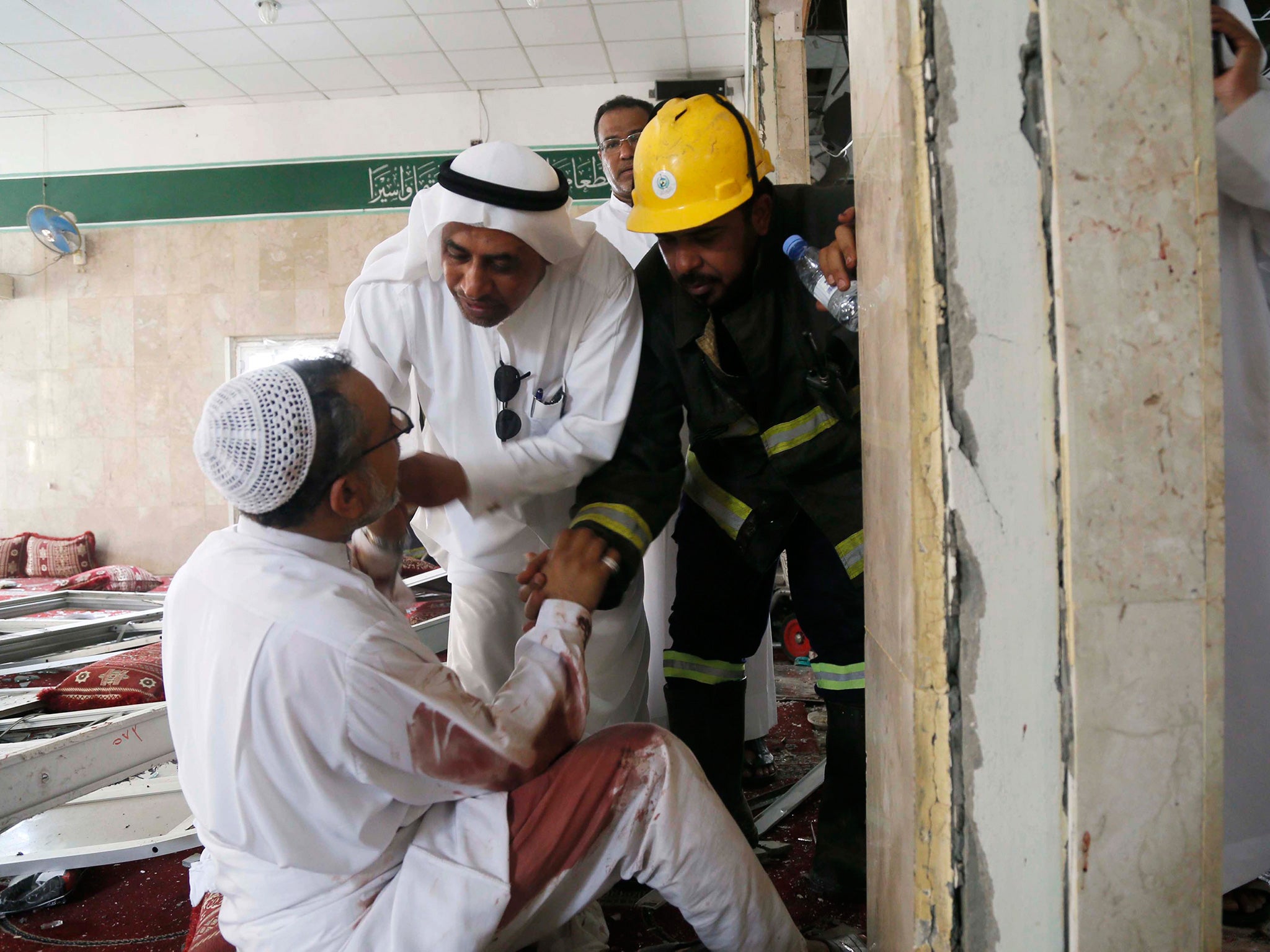Isis claims responsibility for Saudi mosque bombing against Shia minority
More than 150 people were attending Friday prayers in al-Qadeeh

At least 19 worshippers were killed at a mosque in Saudi Arabia on Friday when a suicide bomber targeted members of the country’s Shia Muslim minority as they attended Friday prayers.
sis, the Islamist group that has captured vast swathes of territory in Syria and Iraq, claimed responsibility for the attack. In a statement, the group named the bomber as Abu Ammar al-Najdi. The attack took place at the Imam Ali mosque near Qatif in the east of the country, which is home to Saudi Arabia’s small Shia population.
It is the second time the Shia community has been targeted in the last six months. Last November eight people were killed when a gunman opened fire at another Shia mosque in nearby al-Ahsa.
Shortly before that attack, the group’s leader, Abu Bakr al-Baghdadi, purportedly called on his followers to launch raids in Saudi Arabia. The Saudis responded by rounding up suspected jihadists.
Read more: The brides brainwashed into becoming suicide bombers
'White Briton' was part of suicide attack in Iraq, reports say
Isis suicide bombers target government buildings in Ramadi
Firas Abi Ali, head of Middle East analysis at IHS Country Risk, said: “The fact that [Isis] has managed to deploy a suicide bomber in spite of hundreds of reported arrests against suspected terrorists in the last few months highlights the continuing popularity of Salafist jihadist Wahhabi ideology in Saudi Arabia.
“It appears from initial footage of the attack that the device deployed was not especially sophisticated. An escalation to more destructive vehicle-borne improvised explosive devices would indicate growing capability despite the ongoing efforts of Saudi security services.”
Pictures posted on social media of the aftermath of the attack showed bodies lying among fallen masonry and shattered glass. Many of the walking wounded, wearing traditional white thawbs, were covered in blood.
“We were doing the first part of the prayers when we heard the blast,” Kamal Jaafar Hassan, a worshipper at the mosque, told the Reuters news agency. The Saudi interior ministry said in a statement that the country’s “security authorities will spare no effort in the pursuit of all of those involved in this terrorist crime”.
Saudi Arabia is about 90 per cent Sunni Muslim. With the civil war in Syria, the growing insurgency in Iraq and the internecine conflict in Yemen all being played out between actors on the Sunni-Shia divide, tensions in the region are at boiling point.
Ancient monuments under Isis threat
Show all 8Government officials have denied claims that they are assisting Isis and other extremist groups in Syria and Iraq, which are both run by Shia administrations. Riyadh has, however, launched air strikes on targets held by Shia Houthi rebels in Yemen, killing at least 1,500 people in seven weeks. The Houthis – who overthrew the elected Sunni president last year – are backed by Iran, the strongest Shia power in the region. In an attempt to prevent sectarian aggression within its own borders, the Saudi government has launched a crackdown against extremists of all hues.
It has also promoted hardliners, and last month the former interior minister Prince Mohammed bin Nayef became the Crown Prince and heir apparent. Last year he was responsible for policy on Isis.
Subscribe to Independent Premium to bookmark this article
Want to bookmark your favourite articles and stories to read or reference later? Start your Independent Premium subscription today.

Join our commenting forum
Join thought-provoking conversations, follow other Independent readers and see their replies